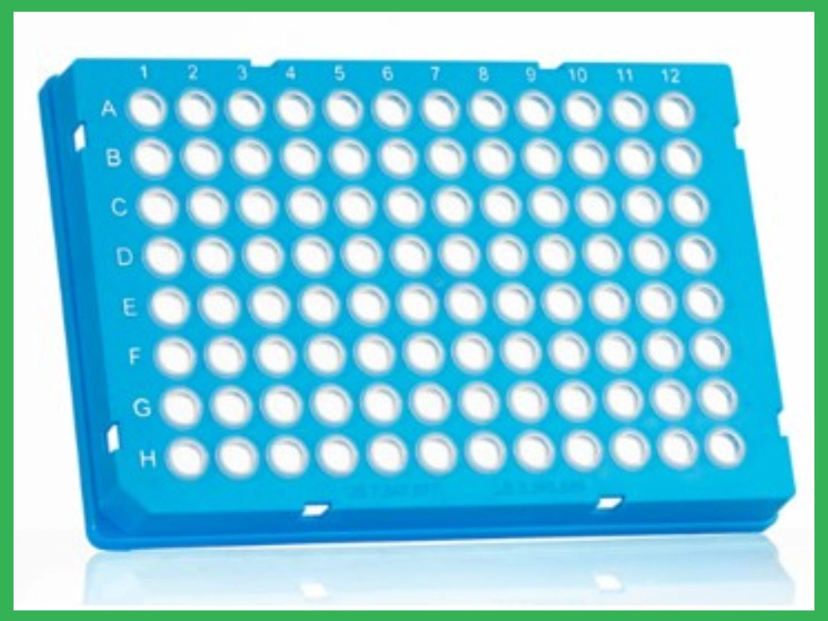qPCR results improved by novel microplate design
Two-component design minimizes risk of evaporation related qPCR inaccuracies
29 Aug 2024
FrameStar® 96 Well Skirted PCR Plate
Azenta Life Sciences reports how the two-component design of its FrameStar® microplate range reduces range reduces thermal expansion and sample evaporation leading to improved consistency of PCR results.
Many commercially available PCR and qPCR plates are based on polypropylene designs because of its chemical inertness and that ultra-thin tube walls can be moulded enabling fast temperature transfer. While polypropylene is the standard material for PCR consumables, thermal expansion and evaporation properties reduce its suitability for applications including qPCR and next-generation sequencing. FrameStar PCR plates employ a novel two-component design consisting of polypropylene tubes in a polycarbonate frame.
In a study* carried out by Emily Flowers, Hanna Oldfield and Gerrit Gutzke, the authors demonstrated how FrameStar PCR plates minimize the problem of evaporation related qPCR inaccuracies due to their two-component design. The reduced risk of evaporation using these two-component plates facilitates the miniaturisation of reaction volumes and therefore provides opportunities for savings relating to lower use of expensive PCR reagents.
Study data also illustrated the benefits of using polycarbonate in the FrameStar PCR plate design. Using a more rigid plate frame which does not alter size or shape during PCR reduces distortion and weakens seal attachment to produce more reliable data for quantification.
FrameStar PCR plates are available in 96- and 384-well formats, with a choice of multiple well-frame colour combinations. The 384-well plates are recommended for low volume PCR. The 96-well plates are available in low and standard (high profile) and come with a variety of skirt lengths (non, semi, and fully skirted).
*Influence of PCR consumables on the accuracy of real-time PCR experiments
Want the latest science news straight to your inbox? Become a SelectScience member for free today>>
